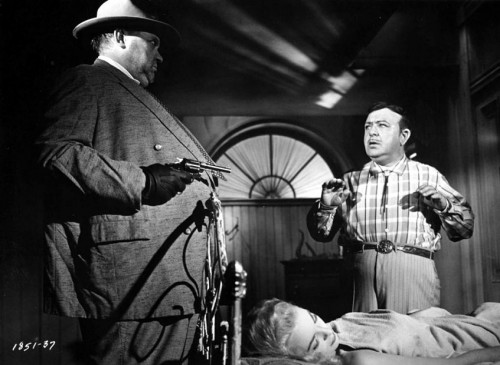
This deeply personal, honest, and insightful reflection on Disney’s Frozen – and our love affair with control – comes from our friend Brandi Midkiff.
Lots of people sneer at the Control Freak archetype. I do not understand these people. They seem to think loss of control would be a good time—like a roller coaster, perhaps, which is actually a tightly controlled construct when functioning correctly and not killing people. Also people choose whether or not to get on the thing, thereby exercising control; so this is not the best illustration, though I see it used a lot.
Loss of control is not an amusement park ride. It is death, dismemberment, famine, enmity, destruction, financial loss, and horrifying social situations that make you wish to God you’d stayed home with a cat on your lap instead of venturing into the greater world. It is falling asleep at the wheel and having the trailer of a semi sheer off the top of your car, along with your head. It is coming home from vacation to find one of the last of your child’s unexpected litter of gerbils dead in the cage because they started fighting and the house-sitters couldn’t spare the time to make a damn phone call to ask you what to do. The root of the desire for control is fear. And fear in this world is not without cause.
My own usual response to fear is to put a lot of energy into creating an airtight system that eliminates risk. But this is not without cost. Go too far with this sort of thing and you will find yourself desiring secrecy even when there’s no need for it. You’ll want to check things all the time and make sure all is well. You’ll suppress emotion, because emotion must be regulated by reason in order for the system to function, and then when it’s time for emotion to have its say, you won’t be able to find it.
I don’t really have a grip on this problem. I honestly don’t. I believe it is right for reason to regulate emotion, for cause and effect to be understood and managed, and for risk to be taken seriously. But I have lived forty-four years, and I see now that I have feared too much and modeled some not-so-healthy behaviors to my kids. I’ve been too quick to circle the wagons when things got rough. There were friendships I didn’t nurture, hospitality I didn’t show, and unasked-for advice I didn’t give but should have. I meant well. I wanted to keep from making mistakes. But fear of making mistakes can lead to sins of omission. “Therefore to him that knoweth to do good, and doeth it not, to him it is sin” (James 4:17).
The sad irony is that the point of control is to protect something, but too much control is destructive. To eliminate all risk is to smother life itself.
To love at all is to be vulnerable. Love anything and your heart will be wrung and possibly broken. If you want to make sure of keeping it intact you must give it to no one, not even an animal. Wrap it carefully round with hobbies and little luxuries; avoid all entanglements. Lock it up safe in the casket or coffin of your selfishness. But in that casket, safe, dark, motionless, airless, it will change. It will not be broken; it will become unbreakable, impenetrable, irredeemable.To love is to be vulnerable.
That’s our friend C.S. Lewis talking, and he knew.
The assumption behind a preoccupation with control is that I can in fact control everything, that it all depends on me. To this unspeakable hubris I can only plead guilty.
And therein lies the system’s flaw. I can’t control everything, and even if I could control half the things I’d like to control, I wouldn’t have the wisdom to manage them properly. That’s how supervillains are made.
Three nights ago, I saw the movie Frozen with my youngest child. This is a story about a princess, Elsa, who has the power to create ice at will and sculpt it into whatever formations she chooses—crystals, pillars, flurries, drifts. Her creations are beautiful, and great fun for Elsa and her younger sister, Anna.
But as the opening song warns, ice is beautiful! powerful! dangerous! cold! Elsa loses control over her power and hurts Anna. The aftermath is a nightmare of shock, trauma, fear, and guilt. Elsa’s parents sternly warn her that this must never happen again. From that day forward, Elsa’s life is terribly altered.
The words fear, love, power, and control all occur in the opening song, and these forces dominate the story. Power carries risk; risk leads to fear; and the response to fear is to try to exercise more control. After Anna’s accident, Elsa focuses all her energy into maintaining control over her power. Because the manifestations have emotional triggers, this involves severe emotional suppression. Her efforts leave her mentally exhausted and socially isolated. Worst of all, Anna, formerly her closest companion, has had her memory wiped of the knowledge of Elsa’s power, leaving her confused and hurt by her sister’s rejection. So a construct designed to keep Anna from being hurt just ends up hurting her in a different way.
Eventually things come to a head, as they are wont to do in Disney movies and in life. After Elsa loses control again and unwittingly freezes the entire kingdom, she flees to a mountain where she thinks she can do no further damage. But Anna follows, refusing to be kept at bay any longer. Cornered and pressured, Elsa struggles to maintain control; but in trying to stifle her emotion, she only warps it, and it breaks out in unwanted and terrifying manifestations. The more she panics, the worse things get.
Watching Elsa’s frantic and futile efforts, I thought, This is exactly like living by the law. Legalism is all about damage control. It can never produce any active good, despite what those who live by it think. It seeks to quell sin, but it only produces rebellion.
Control proves a failure, and Anna is hurt again, this time apparently fatally. Only then does Elsa learn that the true protection, the only force capable of managing her potentially deadly power, is not control at all, but love.
This changes everything. Anna is healed, the kingdom is restored, and Elsa’s entire existence blossoms into a thing of glorious possibility. Transformations abound: death into life, conformity into freedom, fear into love. Elsa is able to not only be near people again, but to relax, to laugh, to play.
There is no fear in love; but perfect love casteth out fear: because fear hath torment. He that feareth is not made perfect in love. (1 John 4:18)
I don’t mean to be flippant by quoting the apostle John in connection with a Disney movie. To be clear, John is speaking of the very reasonable fear of a just judgment–a guilty fear, not the fear of ordinary pain or loss. And the perfect love that’s capable of casting out that fear is the love of God demonstrated in Christ’s propitiation. This is wonderful news for the world, and my friend Jim gives an excellent treatment of the subject here.
But I think I do not go too far in saying that fear, when brooded over too long by an overstimulated mind, is the enemy of love. It cripples relationships, poisons joy, steals hope, and confuses emotion to the point where you honestly don’t know what you feel.
So what is the solution? Some sort of let-love-have-its-way scenario? Bursting into song and dance on a mountaintop like a Disney princess? Maybe it’s just recognizing that the supreme level of control sought by those of us of “freak” status is just an illusion anyway. Terrible things will happen, despite your best efforts to secure yourself against all shock and alarm. You will be blindsided–if not by the thing you’re guarding against, then by something else. That’s what “blindsided” means: you don’t see it coming. And the energy you’re spending on maintaining a defensive system would be better spent on loving the people around you before they’re taken, which they most certainly will be at some point unless you’re taken from them first. Yes, it’s risky. But it’s worth it. They’re worth it. They’re worth the fear and discomfort and uncertainty and vulnerability–wonderfully worth all this and more.

COMMENTS
7 responses to “Control Is Just an Illusion, But Love Casts Out Fear (in Disney’s Frozen)”
Leave a Reply

















I’m just thrilled to see my friend Brandi Midkiff on Mockingbird! What a great piece, now I have to see this movie. Thanks!
Next up … Disney’s Saving Mr. Banks …. I can’t wait. I watched M Poppins last night as part of ABC Family (someone at MBird needs to comment on just what kind of Family ABC has judging by the other programming they advertised). If ever a story about the recklessness of grace in the presence of the law and how its chaos breaks it all down then P. L. Travers nails it …. Go Fly a Kite!
p.s. As part of last night’s Christmas Binge Viewing, TV Land showed this classic which would never be able to be aired today
https://www.youtube.com/watch?v=Uyakyh57t6E
Haven’t seen Saving Mr. Banks yet. My daughter saw it and was surprised that the ending wasn’t softened, considering that it was a Disney movie and Disney was not shown in such a good light.
A piece like this confirms that Mbird is the best web discovery I have made all year. Midkiff’s piece takes a piece of pop culture and shows us why these things may have more to tell us than we realize.
Wonderful thoughts. I shared a few clips at my blog with a link back here.
My sweet friend of yester-year is as brilliant and engaging as she always was! I enjoyed your commentaries and writing style and plan to read more!
Thank you. Yes, “Fear hath torment.” This is a wonderful essay. Most helpful as I move on with my life after a divorce. Fear fools me into thinking I can protect myself and be in control by fighting, escaping or freezing. Slowly, God’s love is taking me from my “frozen” state to a loving state. Trying to control and protect every part of my life is exhausting and simply debilitating. God calls me to abide in Him, not to control. Finally learning this and I am 49. Control is really just an illusion. I have hurt others and myself in the process but so glad I am finally learning. Thank God. Thank God. Thank God.